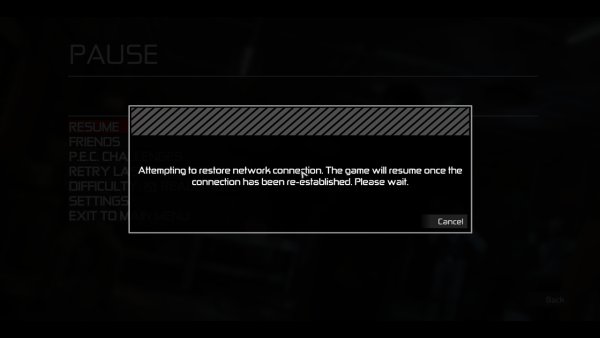It’s around the time for rumors to be flying around the blogosphere about the next generation of consoles that Microsoft and Sony are working on. There are, as expected, rumors and theories about possible technical capabilities, and those sound good. Mostly.
The rumors that have gotten my attention are decidedly less pleasant.
Specifically, the next Xbox console is rumored to be always-online and incapable of playing secondhand games. A video game console, whose only purpose is to play video games, will require an internet connection at all times and be unable to play a video game that has been played on another person’s console.
Always-Online
Always-online is a mixed bag. On the one hand, I can appreciate the security it offers the company requiring it. On the other hand, it has more than enough drawbacks, not the least of which being making all those consoles connected together vulnerable to certain things they otherwise would not be. Just ask Sony how well game companies can guarantee the security of their networks.
Perhaps just as importantly is what the requirement means commercially. I owned the original Xbox within three months of its release. I owned the Xbox 360 in the first week it was available. My 360 is currently sitting less than three feet away from me. I have not been able to connect it to the internet in over four years due to my living arrangements.
Not having my 360 connected to the internet has not prohibited me from enjoying it. I have enjoyed it enough that I would buy another one today if it died, even without that internet connectivity. That means that is at least one person in the world who will be unable to make use of the next Xbox who otherwise would purchase it as soon as was possible. I cannot be the only person who would have similar difficulties.

What about people who are in areas where internet is less available? One of the friends I talk with regularly has periods of days at a time where they have very stringent download limits, strict enough to make a single Youtube video a measurable percent of their ability to use the internet. An always-online console is not something that they would be capable of using at all.
Making a gaming console require an internet connection to function cuts out a much larger number of people from being able to use the product than many people might believe, particularly among those of us who spend our time online. The personal dislike of it aside, it seems to be an extremely bad decision to make from an economic standpoint.
Never Used
The gaming industry has been trying to come up with ways of preventing people from purchasing secondhand games for a while, now, and it is one of the more frustrating obsessions I’ve seen in it.

Used game sales may cut in to new game sales, but the claim that every used game sale is a lost new purchase is simply false. If a person is looking at buying a used game over a new one, the reason is generally the difference in price. If they aren’t willing to pay full price for the game but are willing to pay the lower price then that has the game in someone’s hands it otherwise would not have been.
Moreover, speaking legally there are countries in which there are laws in place that require a game be capable of being resold in exactly the same fashion as any other product would be. While those laws as pertained to gaming deal with downloaded games, such as one finds on Steam or Green Man Gaming, when consoles start marking disks as unplayable in other consoles you begin to approach a very fine legal line, and one that will not make any consumer happy.
In a time when people are already looking at consoles and wondering what sort of future they have collectively, it seems a particularly bad time to include features that are certain to be so universally unpopular as these.






Published: Feb 6, 2013 07:45 pm